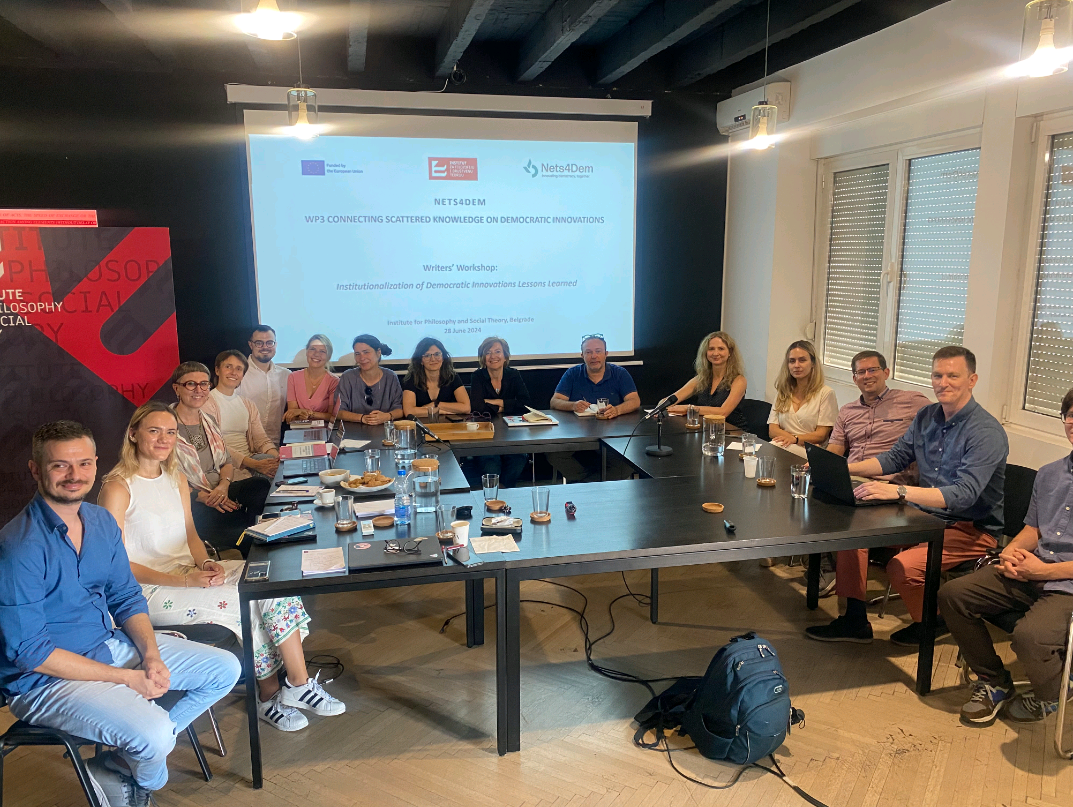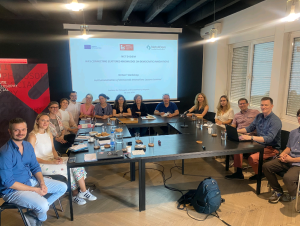On June 28, 2024 Paulina Pospieszna participated the Writers' Workshop: Institutionalization of Democratic Innovations Lessons Learned, hosted by the Institute for Philosophy and Social Theory (IFDT) in Belgrade. This event coincided with the development of a special issue proposal titled "Institutionalization of Democratic Innovations: Lessons Learned," under the editorship of Irena Fiket, Giovanni Alegretti, and Gazela Pudar Drasko. The workshop was part of the Nets4Dem project funded by the European Commission and aimed to gather scholars actively engaged in research on democratic participatory practices.
Pospieszna's presentation, "The Path to Institutionalizing Democratic Innovations in Poland: A Case Study of Citizens' Assemblies," provided insights into the integration of citizens' assemblies into Polish national and local government structures. Despite the existence of various citizen engagement tools, citizens' assemblies in Poland lack formal integration into the political system, operating under ad-hoc frameworks with some standardized procedures but without legal codification.

The presentation drew on observations, consultations, and interviews with practitioners involved in organizing citizens' assemblies in Poland. The presentation discussed three main topics for the future directions of citizens' assemblies in Poland: standardizing procedures, legitimizing citizens' assemblies, and creating new institutions at both national and local levels. Pospieszna highlighted the potential benefits of embedding deliberative practices within existing structures, comparing the advantages of one-time events versus institutionalization. The proposed changes aim to enhance transparency, democratic legitimacy, public participation, and policy effectiveness, ultimately improving the quality of decisions in democratic governance.

